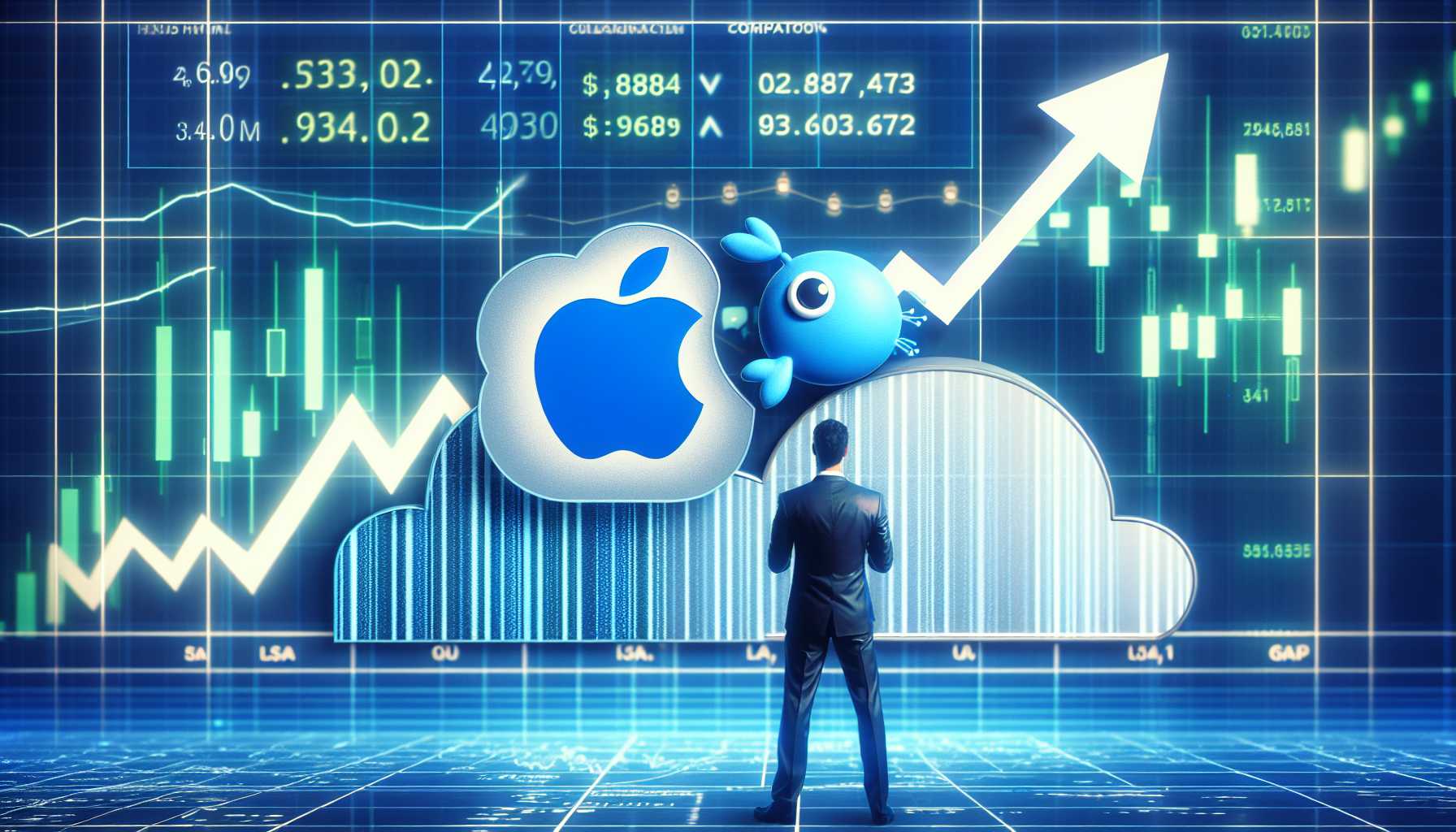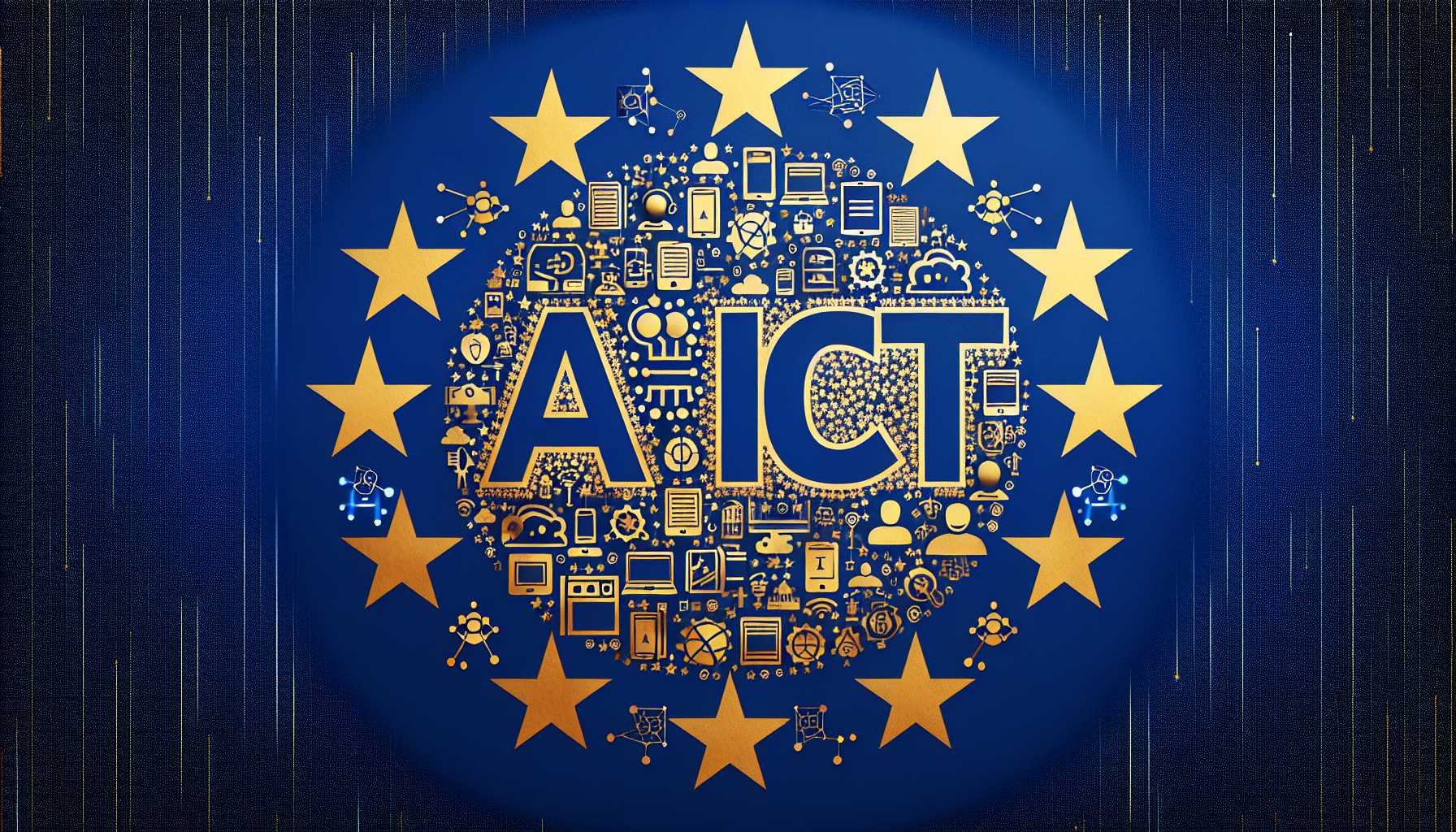The Generative AI Revolution: Seizing Opportunities Amidst Risks
The tectonic plates of technology are shifting, and the groundswell of generative artificial intelligence (AI) is the seismic force causing tremors through every industry. As a purveyor of tech foresight, I’ve been studying the ripples and can confirm: the generative AI tsunami is set to deposit a cash load worth $2.6 to $4.4 trillion annually, as per McKinsey’s estimations. But before we surf these high tides, let’s anchor down the nuts and bolts. Generative AI, folks, is the cool kid on the block, sprucing up businesses from content creation to chatbots. It’s a digital alchemist capable of concocting code, transforming data into insights, and conjuring conversational companions out of thin cyber-air. And it’s not just a passing novelty; over 80% of enterprises are predicted to buddy up with generative AI by 2026. However, this isn’t a mere plug-and-play game. Aspiring to thrive in this revolution requires a stratagem—a blueprint that intertwines AI with the corporate sinew. It’s about people and machines co-existing symbiotically, with AI seeping into the marrow of the business. Darker clouds loom over those who disregard the storm warnings of AI risks, from systemic crashes to societal misfires like bias escalation. Astonishingly, only a meager 17% are shoring up their defenses from the get-go. The winning trifecta lies in human-centric decision-making, iron-clad control over large language model content, and a unified AI approach that deftly avoids the iceberg of future regulation. And with global governments tightening the regulatory corset, from President Biden’s executive AI safeguards to the U.K.’s AI Safety Summit and the EU’s legislative leash, companies have got to stay nimble.
Budget Management in the AI Era: Essentials for Individuals & Startups
Moving away from the abstract into the tangible realm of dollar and cents, budgeting might seem quaint in the AI epoch, yet it’s never been more crucial. I’ve parsed through heaps of apps to bring attention to those that streamline this pillar of personal and business finance, sans the headache of spreadsheets. For individuals, look to Goodbudget and PocketGuard to lead you away from the precipice of financial mishaps with their intuitive and strategic systems. And lovebirds, Honeydue is your ticket to a smooth co-financial journey, encouraging discussions around who foots the bill without the need for a couples counselor. While for the solo warriors, Empower showcases its prowess in balancing books and assets, though it’s for those ready to wield its broader capabilities at full tilt. On the entrepreneurial frontline, FreshBooks and QuickBooks beckon small businesses with open arms, offering a platform to erect towering budgets with simplified elegance. Toshl and Xero invite startups to play in the financial sandbox without emptying their pockets on tools beyond their stage. And let’s marvel at how the simplicity of these apps usurped the traditional pen-to-paper mantra of budgeting, catapulting financial management into the AI-integrated future.
Warren Buffett’s AI Gambit: A Tale of Prudent Investment
Warren Buffett, the oracle of Omaha, isn’t one to frolic in fads but when he tips his hat to artificial intelligence, you bet I perked up my ears. His favorite AI stock? Apple. Yes, the creators of the iconic iPhone—deemed “a better business than any [Buffett-owned] subsidiary”—not only weave a world where the smartphone reigns supreme but are also surreptitiously sowing the seeds of AI innovation. Buffett sees Apple as a consumer goods titan with a tech twist, amassing near $1 billion yearly in AI developments, including a rumored ChatGPT-style chatbot. And let’s not ignore the muscled-up M3 chips in its Macs, setting the stage for on-device AI prowess. That Apple’s AI moves might bolster its services business is no fantasy, and that’s why Buffett’s bet may be a bullseye. Apple’s AI-infused growth could be the next juggernaut following the smartphone revolution’s footsteps.
Market Marvels: IBM and DigitalOcean’s Bargain Bonanza
Despite the stock market flirting with zeniths, bargain vultures can still feast—on companies like IBM and DigitalOcean, to name a couple. The former, an enterprise stalwart, stands armed as an advisor for companies wading into the modernization and AI fray. With a free-cash-flow forecast pegged at $10.5 billion for the recent year, IBM marks a compelling value case at a price-to-free-cash-flow ratio that invites a second glance. Meanwhile, DigitalOcean captures the essence of cloud simplicity for small businesses and developers. With managed cloud services under its wing and acquisitions that streamline its proposition, DigitalOcean not only flaunts a juicy valuation but also a vision that sees its market double in a three-year window, portraying an attractive bargain for the discerning investor.
The Anticipated Xbox Extravaganza of 2024
Transitioning to gaming, Microsoft’s Xbox is primed to keep the throttle floored in 2024. With a pedigree of exclusives like Forza, and the much talked about, albeit slightly underwhelming Starfield, Xbox sets its coordinates for a stellar gaming year. It’s poised to bolster Game Pass with vast, irresistible value while showcasing titles that tantalize the tech-savvy and casual gamers alike. The chattering gaming circles hum with premiers: the immersive flight envy-inducer, Microsoft Flight Simulator, and the narrative heavyweight, Senua’s Saga: Hellblade II. And who can overlook Ubisoft’s pirate fantasies in Skull and Bones, or the perpetual brawl of Tekken 8? Then there’s the enigmatic open-world Star Wars game, spearheaded by Ubisoft, with potential to redefine the gaming space just as the AI that’s altering our interaction with technology.
EU’s AI Act Defense: Fostering Innovation Against Criticism
To cap off, I leap back to the cradle of regulation in the digital Europe of tomorrow. Margrethe Vestager waves the banner of the AI Act, fending off pings of criticism lobbed by President Macron and the like. She construes this regulatory mosaic as a canvass of innovation rather than constriction, offering a lit pathway for startups journeying into the AI maze. Assuring legal certainty, the Act nests a nest for generative AI model makers, aligning the knowledge of compliance checkpoints with application thrust. Nevertheless, this innovative torchbearer recognizes that Europe is hampered by capital constraints, pitted against giants like the U.S. and China. To negate this, Vestager envisions a triumvirate—regulation to engender trust, investments sowing growth, and user adoption rooting AI deeply into societal fabric.
All roads point to one truth: the tech world is evolving unfathomably, from generative AI to fiscal apps, investment philosophies, and digital paradigms. Navigating this landscape requires a judicious mix of daring innovation, astute investment, and strategic adaptation. The year 2024 beckons us to a milestone in tech introspection—where only the sage and the swift will persist.






